- You Better Run/Everybody's Gonna Say (CBS 202456) 1966
- Our Song/Laughin, Cryin, Laughin (CBS 202656) 1967
- Long Time Coming/I've Got A Secret (CBS 2858) 1967
Listen
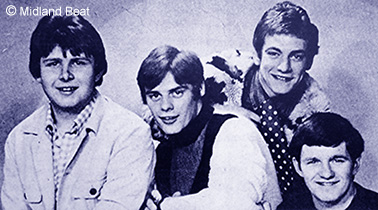
WALSALL
Updated February, 2023
Roger Beamer bass guitar, vocal
John Crutchley guitar, vocal
Robert Plant lead vocal, harmonica, guitar
Geoff Thompson drums
This mod-styled 1960s West Midlands band is significant in rock music history as the first professional recording group that a young aspiring vocalist named Robert Plant was a member of. This was a few years before Robert found international stardom as part of Led Zeppelin - one of the greatest and most influential rock groups of all time!
The photo shown above from a July 1966 'Midland Beat' newspaper has from left to right; Geoff Thompson, John Crutchley, Robert Plant, and Roger Beamer.
"You Better Run"
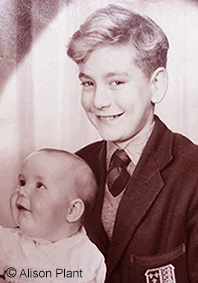
Robert Anthony Plant was born in West Bromwich on August 20, 1948 and later lived near Kidderminster where he grew up in a comfortable middle-class family along with his younger sister Alison. His grandfather had played in a brass band and Robert's father worked as a Civil Engineer and was a keen violinist until the pressure of raising a family took over. Robert's first love was football (soccer) and some of his earliest memories were of his dad taking him to matches in support of their favorite local team - The Wolverhampton Wanderers (Wolves).
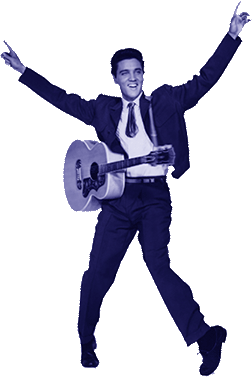
Robert Plant was barely 10 years old when he became a big fan of Elvis Presley whose influence on him was considerable. The UK in the late 1950s was discovering American rock 'n' roll with tours by Bill Haley and his Comets, Buddy Holly, Eddie Cochrane, and Gene Vincent. Robert idolized Elvis to the point of copying his hair style and clothes.
A bright student, Robert Plant passed his grammar school entrance exams and was enrolled at the prestigious but strict King Edward VI Grammar School for Boys in Stourbridge where he would go for the next five years. When not in the classroom or playing sports, he spent time with other students who played guitar while Rob did his best "Elvis" impression.
"Rob would walk into the main hall for assembly with his quiff and his collar turned up and you could see all the masters and prefects glaring at him"
A school friend Gary Tolley remembered; "Rob was very good looking and he always seemed to be at the centre of what was going on. He had something... charisma I suppose. He wore the school uniform but somehow he never looked quite the same as everybody else. Robert would walk into the main hall for assembly with his quiff and his collar turned up and you could see all the masters and prefects glaring at him."
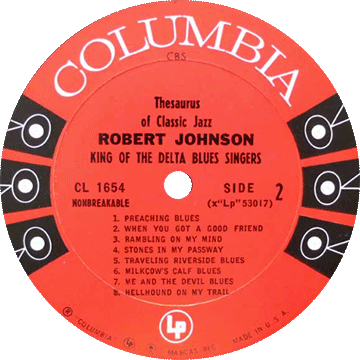
With money earned from delivering newspapers, Robert and his friends went on regular record-buying trips into Birmingham where a shop on Hurst Street called "The Diskery" stocked hard-to-find blues records imported from America. Robert soon became fascinated with black American blues music and its seductive mystery of forbidden pleasures extolled by legendary singers like Robert Johnson, Howlin' Wolf, and John Lee Hooker.
It was not guitar but harmonica that the young Robert Plant first learned to play. Armed with his weapon of choice, he filled in as temporary vocalist for a local rock 'n' roll group called "The Jurymen". With them, he performed for the first time on stage in 1963 at a pub in Lye on Pedmore Road called 'The Bulls Head'.
On this historic occasion in rock music history, he took the stage with confidence and the audience was intrigued by the charismatic young blues singer - then only 15 years old. Rob was allowed to play further gigs with the band until their regular vocalist returned.
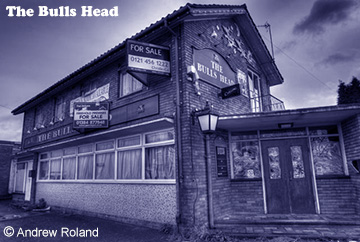
The Jurymen's guitarist John Dudley (whose grandfather ran the pub) said; "Rob was so much into the kind of music that we weren't. I mean, where on earth he got the knowledge he had of the blues from I don't know. He was forever going on about people like Sonny Boy Williamson and from that age. For God's sake, in those days you wouldn't hear anything like that on the radio!"
Another pivotal moment in Robert Plant's life came in October of 1963 when live on-stage at The Gaumont Cinema in Wolverhampton, he saw The Rolling Stones, The Everly Brothers, Little Richard and Bo Diddley perform on a package tour. While enjoying the other acts in the show, it was Bo Diddley who impressed him the most. Robert recalled years later; "Though the Stones were great, they were really crap in comparison with Diddley. All his rhythms were so sexual - just oozing, even in a twenty minute slot."
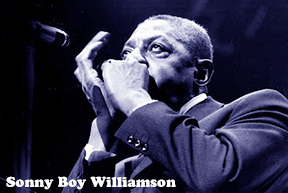
In February 1964, Robert went to Birmingham's town hall to see legendary American bluesman John Lee Curtis "Sonny Boy" Williamson perform. Hoping to meet Sonny Boy back-stage after the show, Robert caught up with him in the men's toilet where he was told not so politely by his hero to "fuck off". Robert then snuck into the dressing room and stole one of his harmonicas!
The Seven Stars pub in Stourbridge became a major attraction for the young Robert Plant when they staged folk and blues nights. A local line-up called "The Delta Blues Band" performed there and it wasn't long before Robert persuaded these much older musicians to let him get up and perform a few songs with them.
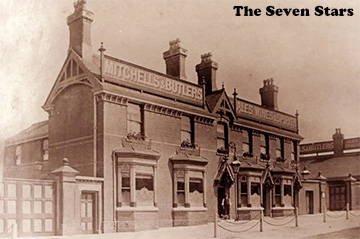
Robert's appearances at Seven Stars became a regular occurence. He was also to mingle there with a group called "Sounds Of Blue" whose guitarist was Stan Webb with pianist Christine Perfect, and future Traffic sax/flute player Chris Wood. They later became Chicken Shack and Christine Perfect eventually found stardom as "Christine McVie" in Fleetwood Mac.
The UK's "beat boom" as started by The Beatles and other Liverpool groups was well underway by this time. The term "Brumbeat" was coined in an attempt to stir up interest in West Midlands bands and attract the big London record companies. Robert Plant recalled; "By the time I was capable of stepping in front of a microphone the Midlands scene was full of beat groups and I was a bit late in getting on the bandwagon. But I'd gotten a really good schooling playing with people quite a bit older than me."
By mid 1964, Robert Plant was singing the blues around the West Midlands in short-lived line-ups including one called "Black Snake Moan" named after a Blind Lemon Jefferson song. While paying his blues dues, the late nights were to have an adverse effect on his school marks to the dismay of his teachers and parents. However, he remained popular with the lads at school and had no shortage of female admirers who turned up at gigs and likely contributed to some of those late nights!
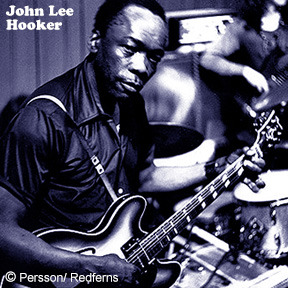
Robert's next group was called The Crawling King Snakes (named after a John Lee Hooker song). Along with guitarist Roy Price and bass player Terry Edwards, this fluctuating line-up was to eventually include a young drummer called John "Bonzo" Bonham with whom Robert became friends.
Robert Plant said; "There was a guy in the audience with quite an arrogant air to himself, very cocky. And he came up to me after the show, and he said 'You're pretty good. But you'd be a lot better with a drummer like me.' John was so good, everybody wanted him in the band."
John Bonham had previously played drums in Terry Webb and The Spiders around Stratford-Upon Avon, and in a Birmingham-based beat group called The Senators and also with legendary Brum vocalist Pat Wayne in The Beachcombers. Although John didn't stay with Robert in the Crawling King Snakes for long, fate would eventually see their paths cross again.
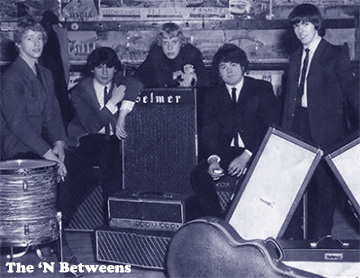
Robert Plant was now in his last year of school but his grade average had dropped considerably. His O-level exams produced only a single pass so his parents made him stay on for another year. This didn't seem to bother Robert as he was now making regular money with the Crawling King Snakes (who were more "pop" oriented than their name suggested).
Rob also had a good time hanging out with other local bands including "The Shakedown Sound" from Kidderminster with their dynamic vocalist Jess Roden and guitarist Kevyn Gammond. Robert also admired Wolverhampton's 'N Betweens (who became Slade), and of course Birmingham's own Spencer Davis Group featuring the incredibly talented Stevie Winwood.
"You'll never amount to anything"
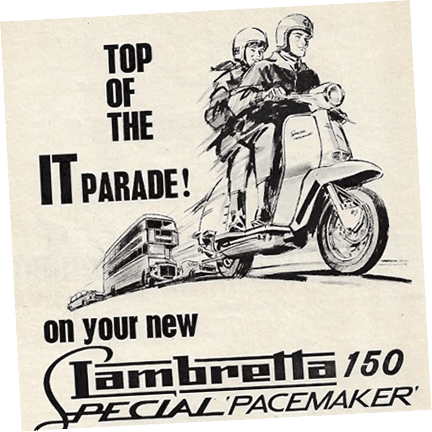
The final year at school for Robert Plant was not a good one. His marks improved only slightly and he often skipped classes. On one occasion he was caught red-handed in Birmingham by one of his teachers who had the day off and saw Robert with a friend in town smoking while still wearing the school uniform. Legend has it that the headmaster Mr Chambers told Robert; "You'll never amount to anything!" Five years later, Robert Plant fulfilled many a repressed schoolboy's dream when he drove up to his former headmaster's house in a Rolls Royce and said; "Hello Sir... Remember me?"
The "Mod" movement was taking hold in the mid 1960s and popularized by new young groups like 'The Small Faces' and 'The Who'. Robert Plant was now working as a stock boy in Stringers department store in Stourbridge and had saved enough money to buy a Lambretta motor scooter on which he drove to gigs wearing a parka and the latest mod fashions.
In 1965 The Crawling King Snakes were playing regularly at Mary "Ma" Regan's Old Hill Plaza where Robert soon became one of her favorites. There, he helped out as a disc jockey, playing soul and Motown records along with introducing visiting performers.
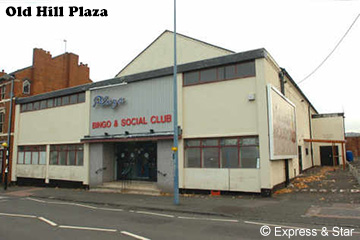
Robert recalled; "I'd arrive at the Plaza on my Lambretta, go into the dressing room and put my suit on, and then go out and introduce people like Stevie Wonder. I remember he came out with his hand on his bandleader's shoulder, and he put him on the microphone. Then he started playing 'Fingertips Part 2'. This was in Old Hill in the Black Country! It was unreal to be able to hear such quality. Being close to that kind of energy. If that isn't going to turn your head and make you say "Is there anything else I can do?"
Robert's father didn't agree and sent his reluctant son off to Kidderminster College of Further Education to train in accounting. This was followed by a job at a firm in Stourport as a trainee chartered accountant where Robert lasted only a few weeks before being told to leave. He then took a part-time job in a carpet factory but Robert's mind was already made up. He was going to make it as a professional singer and nothing was going to stop him.
Despite getting some good gigs with the Crawling King Snakes including opening for 'The Walker Brothers' and 'Gene Vincent' at Stourbridge Town Hall, the group had disbanded and Robert Plant now looked for a committed band with whom he could "turn pro". While at Old Hill Plaza one night, he spoke with John Crutchley who played guitar in a young Walsall-based group called "The Tennessee Teens". They had recently returned from engagements in Frankfurt, Germany.
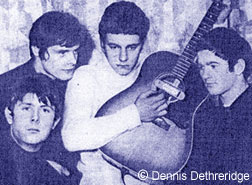
The Tennessee Teens were formed from an early 1960s line-up known as "Lee Vincent and The Wildcats". The group's original vocalist was a character who went by the name of "Ronnie Annakin". Their drummer Geoff Thompson was born in Cannock on December 11, 1946. Bass guitarist Roger Beamer was born December 19, 1946 in Walsall, and lead guitarist John Crutchley was born in Birmingham on March 11, 1947.
John Crutchley remembered; "He asked me if he could sing with us. We were doing the Plaza three or four times a week. Robert began to get up and do a song with us, some blues stuff, some Chuck Berry, Solomon Burke's 'Everybody Needs Somebody To Love'. He stuck out even then. He liked to wear a bomber jacket and he'd got this big blond curly hair".
"We rehearsed at my parent's house which was an old corner shop. My dad would ask me, Is the "Rubber Man" coming over tonight?"
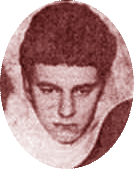
Soon after Robert Plant joined the line-up they changed their name to the more mod-sounding "Listen". Robert cut his hair in the mod style and the group started wearing smart suits for their appearances on-stage. With Robert fronting them, the band's following increased considerably. Their high-energy renditions of Tamla Motown, blues and soul records along with their fashionable mod clothes were especially popular with the female fans.
No doubt having taken notes from other performers he admired, Robert Plant refined his image on-stage and developed distinct fluid dance movements along with a more controlled and dynamic vocal delivery. John Crutchley said; "He was great. We would start off our set with 'Hold On I'm Comin' by Sam and Dave, and Robert would dance across the stage like he was floating. We rehearsed at my parent's house which was an old corner shop. My dad would ask me, Is the "Rubber Man" coming over tonight?"
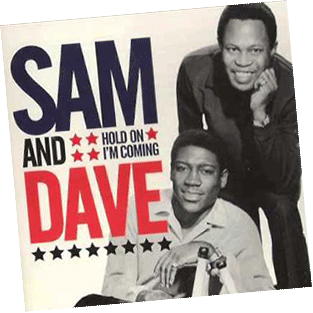
Robert Plant confronted local music columnist John Ogden who wrote for Wolverhampton's Express and Star. No doubt impressed by Robert's enthusiasm, John wrote a story about Listen for the paper that was published on March 6, 1966. The article mentioned that Listen were to have appeared on ITV's pop music television show "Ready Steady Go!" at the invitation of Cathy McGowan, but unfortunately they had to decline owing to prior gig commitments.
Pat Coles who was a fan of the group said; "My friend Jeanette and I used to go to The Ritz, Kings Heath in Birmingham every week. The Listen played there often, it was a week night and must have been 1965/66. We used to love to see them, especially Rob Plant. The band played and we used to dance the night away. I remember picking up Rob's cigarette end off the floor and keeping it for many years - the mad things we used to do!"
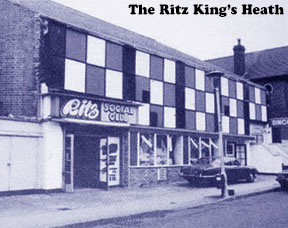
Sadly, Robert's parents did not share this enthusiasm for their son's latest venture and wanted him to "get a proper job". John Crutchley remembered; "We used to have to go and pick him up on a Saturday night. I remember his mum was quite prim and his dad being an ex-sergeant major type. His dad seemed a nice chap but neither of them was at all supportive in what he was doing. They never came to see him play."
Things came to a head when Robert Plant's parents tried to talk sense into their son who following an argument, left the family home to pursue his ambition full-time. He found temporary accommodation with bass guitarist Roger Beamer whose parents allowed him to stay at their house in Walsall. Now with the freedom to do what he wanted, Robert Plant threw himself into fronting and promoting the band.
"We used to go to gigs with Noddy Holder's dad's buckets crashing around on top of the van!"
Another aspiring black country vocalist called "Noddy" Holder who played guitar in a band called Steve Brett and The Mavericks (he eventually found fame as the singer in Slade) occasionally earned extra money as a 'roadie' by driving the members of Listen to their gigs in his father's window cleaning van. Years later Robert Plant recalled; "We used to go to gigs with Noddy Holder's dad's buckets crashing around on top of the van!"
As well as playing well-known local venues like "The Ship and Rainbow" pub and "The Woolpack" in Wolverhampton, Listen also travelled further afield. Barrie Aidis from Droitwich remembered; "I saw them (Listen) as support to one of the motown artists at Boston Gliderdrome in Lincolnshire. At the time I thought they were terrific with the best vocalist I had ever seen. It was several years ago that I realized their vocalist was Robert Plant from reading Brum Rocks! The whole band were exceptional."
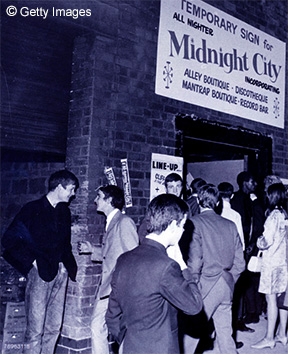
Another fan Jeff Holt wrote; "Happy memories of The Listen at the 'Midnight City' in Digbeth, Birmingham opposite the old police station. Robert Plant singing with a finger in one ear (how many times have we seen that) and the band smashing up TV's on stage. The Midnight City had a terrible reputation in the press but we managed to escape unscathed!"
The "television smashing" was likely inspired by a dynamic new Birmingham group called The Move whom the members of Listen greatly admired. Robert Plant and John Crutchley would sometimes even go so far as to enact a mock "fight" on-stage until the bouncers went up to pull them apart. It all contributed to the notoriety and resulting publicity that the group hoped to gain in order to attract interest from the big record companies.
However, not all those who went to a Listen performance were overly impressed and this included some of their black country contemporaries. "We used to call him 'The Dancer'. He didn't actually sing songs, he just danced around" recalled Noddy Holder who had by then joined The 'N Betweens. But Noddy admitted Rob would be a good addition to the 'N Betweens line-up to attract the girls if nothing else.
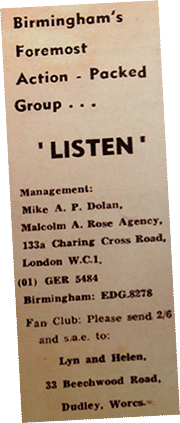
'N Betweens bassist Jim Lea said; "The girls thought he was wonderful. They used to have these Monday night dances at the swimming baths in Willenhall. I saw him there dancing with a neck-coat on, showing off to all the birds."
Who guitarist Pete Townshend remembered an occasion when a young Robert Plant was in the audience for a performance by "The Who" in Kidderminster. Roger Daltrey had refused to go on stage that night and spotting the vacant microphone, Robert approached the band offering his services as their new vocalist! Pete also said Uglys singer Steve Gibbons volunteered to substitute when a similar incident happened in Birmingham.
By the summer of 1966, Robert Plant had found a temporary home on Trinity Road, West Bromwich with the Indian-born immigrant family of his girlfriend Maureen Wilson whom he would later marry. The support they provided was a godsend to Robert, but nothing would distract him from his goal to be a singing star.
The group got Mike Dolan from Birmingham as their manager who had London connections with the Malcolm Rose Agency and The Astra Agency in Wolverhampton. Listen even started their own fan club that could be joined for the nominal price of two shillings and sixpence.
"We went all over the place in a van Mrs Regan had given to us" said John Crutchley. "It had belonged to another of her bands The Redcaps but they'd split up." Listen were now travelling to far away exotic places like Torquay and Newcastle where they performed at the famous "Club A' Go Go".
"Listen are one of the most colourful groups around, their mod fashions arousing almost as much comment as their wild pulsating music"
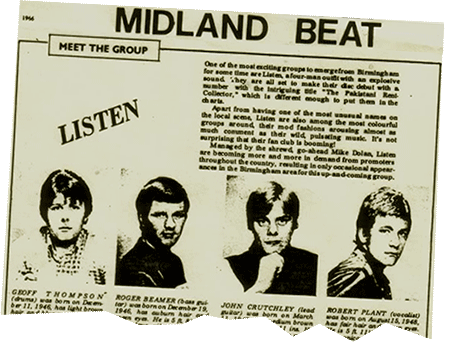
Listen's big chance came when Mike Dolan managed to get them a recording contract with CBS Records on the strength of a demo tape that he had shopped around London. The Midland Beat newspaper responded by publishing an enthusiastic feature on the band in their July 1966 edition which read; "One of the most exciting groups to emerge from Birmingham for some time are Listen, a four man outfit with an explosive sound. Listen are also one of the most colourful groups around, their mod fashions arousing almost as much comment as their wild pulsating music."
The paper proclaimed that Listen's first record release would be titled "The Pakistani Rent Collector". If this bizzare title even exists as a recording it would likely be an embarrassment to those who had any connection with it! (if anyone's heard the record, do let me know). The Midland Beat, as per tradition, included individual bios of each group member along with their photos.
The record company chose a song titled 'You Better Run' by the US hit group "The Young Rascals" as the A-side to Listen's single release on the CBS label. The band complied but unfortunately, things did not go the way they had hoped during the recording session in London.
John Crutchley recalled; "CBS said they wanted to have session guys on it to make it more commercial. We were a little bit upset but it was one of those things. We were trying to get a hit record so we were led." With session musicians providing the instrumental backing, Robert Plant was the only group member required to add his distinctive voice to the recording.
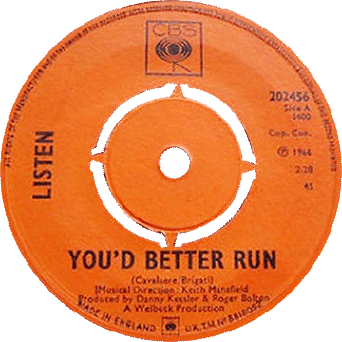
The single's more upbeat B-side titled 'Everybody's Gonna Say' was a group composition which again featured Robert Plant's lead vocal but it's questionable as to if the rest of the group even played on it. Both recordings arranged by Keith Mansfield and produced by Danny Kessler and Roger Bolton featured an uncharacteristic heavy brass section and female backing vocals, one of whom was future Elton John collaborator Kiki Dee.
The debut single by "Listen" was released by CBS in November 1966. To help get the 45 into the charts, the group were then tasked by their management to visit all the record shops in the area and request their own record.
This plan backfired when it was realized the group's black country rivals The 'N Betweens had also recorded 'You Better Run' for Columbia Records and it was issued around the same time as Listen's version! At least the 'N Betweens got to play on their record, but while this impromptu "battle of the bands" may have boosted local record sales, neither group managed to make the national charts.
John Crutchley said; "After that, things started to peter out for us. A lot of money had gone into publicizing the record. We more or less sat down together and admitted it wasn't working out. We were really broke too."
The excitement of having a record out soon turned to disappointment when it was discovered that CBS was only interested in Robert Plant and not the rest of the group. Their initial energy and enthusiasm evaporated and plans to add a keyboard player to the line-up came to nothing. 1966 ended on a low note for both Listen and Robert Plant.
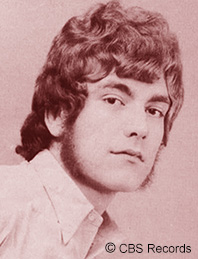
Robert's good looks and obvious sex-appeal was not lost on CBS who intended to market him as a "pop singer" along the same lines as 'Tom Jones' or 'Engelbert Humperdinck'. Amid some animosity, Robert Plant left his group who carried on for a short time before disbanding. He was still signed to CBS Records as a solo recording artist and it was under this guise that he recorded a couple more singles.
The first was an Italian romantic ballad titled 'La Musica e Finita' that was re-worked by Danny Kessler into 'Our Song' with Robert's vocal recorded over a big orchestral production. The B-side titled 'Laughin, Cryin, Laughin' had a similar commercially-aimed production style. Our Song was issued by CBS in early 1967 as Robert Plant's first solo record. To his dismay it sold less than 1,000 copies.
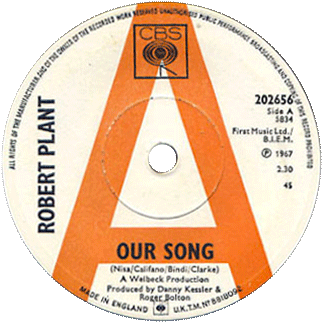
It would be five long months before CBS tried again with Robert Plant's second single A-side titled 'Long Time Coming' but it did no better than his first. Though these records were seen as an obvious "sell-out" to his blues and mod ideals, Robert Plant had no choice but to go along with it. He had lost his band and with no paying gigs, had to survive on handouts and the small wage his girlfriend Maureen earned working as a shop girl at Marks & Spencers.
In an about face, Robert Plant's father took pity and hooked him up with a local dance band led by Tony Billingham. While Robert did play a few dates with them in and around Kidderminster, the much older audience did not appreciate his appearance or stage antics.
Something was in the air by the spring of 1967. The Beatles ground-breaking double-A sided single 'Penny Lane/Strawberry Fields' was kept from the top spot in the record chart by Engelbert Humperdinck's 'Please Release Me'. They unveiled their influential "Sgt. Pepper's Lonely Hearts Club Band" LP in June and pop music would never be the same again. The BBC launched 'Radio 1' and the "Summer of Love" was unfolding to the sounds of new groups like The Move and Traffic, The Jimi Hendrix Experience, and The Pink Floyd.
In that same summer, former top session guitarist Jimmy Page was touring America in The Yardbirds. John Paul Jones was in London working on string arrangements for The Rolling Stones. John Bonham was employed as a labourer on a building site by day and at night played drums in a Birmingham band called The Way Of Life. And... former Listen vocalist Robert Plant was back gigging around the West Midlands fronting a new line-up called "The Band of Joy" - but that's another story! (see Robert Plant and The Band of Joy).
Note: Geoff Thompson, the original drummer for Listen formed a group called "Fire" in the late 1960s. Although Geoff left in the 1980's they continue to perform as a trio with present members drummer Graham Lightfoot, guitarist Johnny Harris, and bassist Tony Chester.
Sources: Robert Plant - A Life book by Paul Rees 2013; 'Feel The Noise' book by Chris Charlesworth 1984; 'Who's Crazee Now?' book by Noddy Holder 1999; plus assistance from John H. Warburg, Pat Coles, Barrie Aidis, Jeff Holt and S. Rolinson. Some selected quotes are from 'Robert Plant - A Life' book by Paul Rees.
Copyright © John R Woodhouse 2016
Listen and Robert Plant 1960s Record Releases
Listen Singles:
Robert Plant Singles:
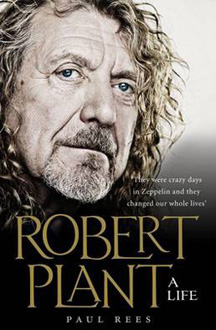
To see a review of Robert Plant's 2013 biography by Paul Rees click HERE.
Visit the official Robert Plant website at www.robertplant.com.
If you would like to contribute to this page, please e-mail john@brumbeat.net